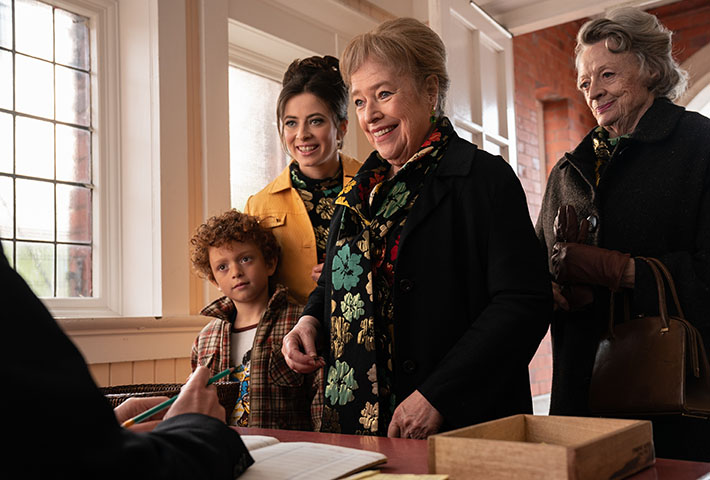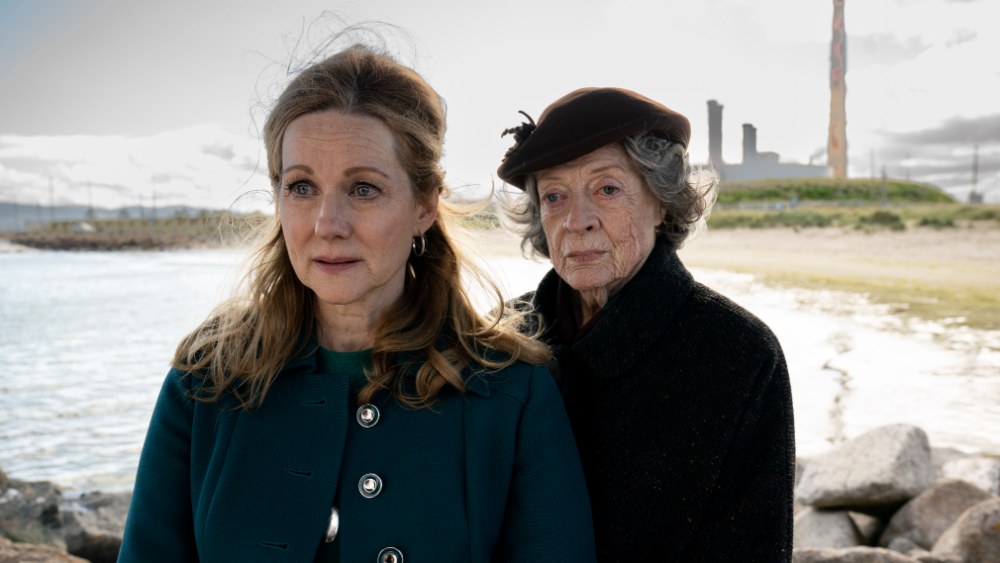Film Review: The Miracle Club (2023)
Directed by Thaddeus O'Sullivan
Written by Joshua D. Maurer, Timothy Prager, Jimmy Smallhorne
Starring: Maggie Smith, Kathy Bates, Laura Linney & Agnes O'Casey
Reviewed by Justin Clarke
Classification PG-13 - 1h 30m
In theatre from August 3rd
3 STARS
- A quietly feminist film about forgiveness and reconciliation, led by the ever joyful Dame Maggie Smith and Kathy Bates -
For the women of the Irish town of Ballygar, their dreams of a slice of freedom rest in the religious pilgrimage to the sacred French town of Lourdes and its miracles. Set in 1967, The Miracle Club sees the ever loveable Maggie Smith (Harry Potter Series, Downton Abbey) and character actor Kathy Bates (Misery, American Horror Story) don Irish accents in a film that is quietly feminist in comparison to the popping pink palettes of Barbie.
Three generations of friends, Lily (Smith), Eileen (Bates) and Dolly (Agnes O’Casey) finally win their way to a pilgrimage to Lourdes, and with it comes the hope of miracles. Whether it be to cure Lily’s broken heart at the loss of her son, Eileen’s recently discovered breast lump, or Dolly’s mute son, Daniel. Before the trip begins, the long-forgotten Chrissie (Laura Linney) returns to see her mother buried and finds herself a seat on the spiritual journey, along with unchecked emotional baggage between herself, Lily and Eileen.
Images by supplied Sony Pictures
Director Thaddeus O’Sullivan moves away from big budget set pieces to focus on the dynamic between the four women, imbuing the film with as much heart as the ever regal Smith and Bates can muster. The main location of Lourdes seems oddly CGI, giving the film almost a fairytale quality about it. The Miracle Club is at its best when the four women are on screen together, either throwing bitter quips at unsolved breakdowns, memories of heartbreak, regret, healing and ultimately reconciliation.
Linney as the reserved Chrissie is the stoic martyr of the film, allowing herself to be berated by cold chides by Eileen and Lily until the two unravel themselves. There’s a reserved poise about Linney throughout as she shows the invisible grief and regret that hangs around her neck. Bates continues to showcase her Oscar-winning cold stare that she crafted in Misery and brings a bitter sadness to her often overlooked matriarchal role. Dolly’s magnetic attachment to miracles from Lourdes evokes the religious attitudes for those with a lack of self-direction and inspiration. Smith shows herself to be loveable as always, with a sharp tongue and cheeky attitude in her line delivery, whilst shouldering a heft of the film’s emotion. Her ability to give each moment the sentiment it requires proves why we love seeing her on screen. O’Casey holds her own against the giant she acts opposite, allowing her guilt to bleed through the screen. The conversation between herself and the other four women around her pregnancy with Daniel is one of the film’s highlights.
In comparison to the blockbuster films out at the moment, The Miracle Club won’t see Dame Maggie Smith riding a motorbike off a cliff, or Kathy Bates version of a toy doll. Instead, the film offers a much slower paced film that focuses on acceptance and forgiveness. It doesn’t (thankfully) force feed religion down your throat, instead it uses the focus on the Virgin Mother as the desire for miracles in your life when you fail to see the ones around you.
The Miracle Club may just serve as a mushy but enjoyable piece of cinema for your afternoon delights.
The film’s feminist qualities come about at the humorous expense of the men the women leave behind on their pilgrimage. Eileen’s husband, Frank, is hit with the stark reality of having to buy groceries and cook for a whole family, whilst Dolly’s husband is faced with having to change a diaper properly, and Lily’s husband is told to stay in bed “where it’s safe”. There’s more than a touch of slightly cheesy emotion as the partner’s are reunited and small miracles occur - but hey, this is 1967 after all. This type of lower key feminism won’t get the Ben Shapiro reaction to it, but will be enough to make your Grandparents shed a tear.
If you’re not in the mood for a blockbuster action movie, a vibrant feminist manifesto, or a character study of historical figures, The Miracle Club may just serve as a mushy but enjoyable piece of cinema for your afternoon delights. Forgettable it may be, enjoyable nonetheless.

%20(1).png)

















Comments